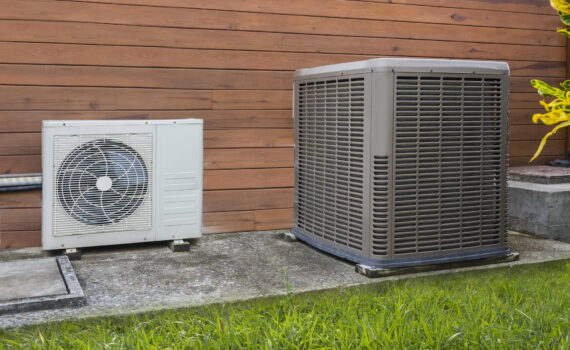
What to Do About Water Leaks in HVAC Units
The average lifespan of an HVAC system is about fifteen to twenty years. Unfortunately, that doesn’t mean yours will go that long without experiencing some technical difficulties. There are a wide variety of issues that could go wrong, including water leaks.
One of the biggest concerns regarding this problem is that it can cause damage to other parts of your HVAC system, your electrical circuits, and any nearby appliances. This guide will tell you everything you need to know about HVAC water leaks and what you can do to fix them. Keep reading to learn more.
Signs of Leakage
If your HVAC is severely leaking, a pool of water will begin to form around it. As soon as you detect a leak, you should turn off your HVAC immediately. Then, contact a technician because they can figure out what is causing the leak and fix the issue right away.
However, when the leak is so small, there may not be any visible signs to help you detect the problem. If you’ve noticed your electricity bill has increased, but you haven’t changed the thermostat, your HVAC might be leaking. Have an HVAC contractor run some tests on your system so that they can diagnose the problem.
What’s Causes Water Leaks?
The most common reason for HVAC unit leaks is a clogged drainpipe. It occurs because your HVAC pulls in the warm air from your house and removes the moisture before cooling it and sending it back out.
At this point, any dirt and debris will get removed as well. After a while, though, it will build up, preventing the moisture from escaping and causing it to leak out elsewhere in the system.
Water leaks are another reason to keep an eye on your refrigerant levels. This substance ensures that the evaporator coils, which remove the moisture from the air, stay cold.
When it runs low, the remaining refrigerant freezes the coils as a result of an overworked system. When you refill the refrigerant, the temperatures will go back to normal, and the frozen parts will melt, causing this increase in water to leak.
The evaporator coils will also freeze if you fail to change out the air filters. When they get too dirty, the air can’t flow easily through the system. Similar to what happens with the refrigerant, it gets too cold around the evaporated coils causing them to ice over.
Other causes of water leaks:
- The temperature is too low
- Rusted or cracked drain pan
- Clogged condensate pump
Hire an HVAC Contractor to Help Take Care Of Your System
Now that you know how to detect water leaks and the importance of catching them early, you can start properly maintaining yours to prevent this from becoming an issue in the future. The best way to prevent a leak from happening again is to get regular maintenance checks.
When you need an HVAC service, contact Natal Air Conditioning. For over thirty years, we’ve helped homeowners keep their energy bills down by running maintenance checks, fixing current parts, and providing HVAC installations. Fill out our online form to schedule a service request or call us at 954-788-0099.






